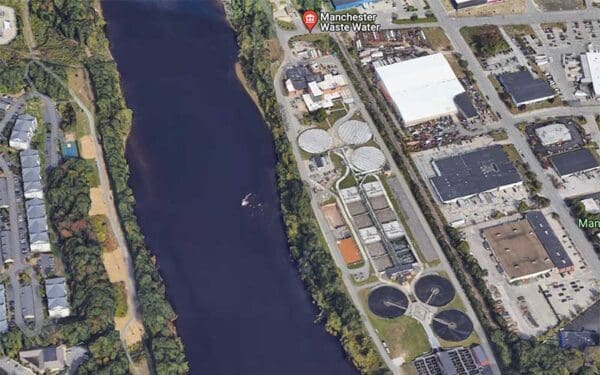
The Turnkey Landfill expansion will dump nearly 16 million tons of out-of-state trash in New Hampshire, especially if a key condition of the state permit is allowed to stand. Photo: Lightspring via Shutterstock
In 2018, the New Hampshire Department of Environmental Services (DES) approved a permit for the Turnkey Landfill in Rochester, New Hampshire – already New England’s largest landfill – to expand its footprint by nearly 60 acres. CLF opposed this major expansion. Landfills emit harmful greenhouse gases and eventually leak, putting both the environment and human health at risk. What’s more, such a significant landfill expansion flies in the face of New Hampshire laws that favor waste reduction, recycling, and composting over disposal.
Our appeal challenged a critical condition in the permit that is intended to cut the amount of waste flowing to the landfill. However, that condition is written so ambiguously that you cannot measure its actual effect in reducing waste.
In our initial appeal to the New Hampshire Waste Management Council, several members of the six-member body expressed frustration with the permit’s ambiguity, noting that it was impossible to predict whether it would accomplish its goal of reducing waste disposal. Following a split, 3-to-3 vote by the council, CLF appealed the matter to the New Hampshire Supreme Court.
Vague Language Makes Critical Condition in Permit Meaningless
In 2017, Waste Management, Inc., applied to DES to expand its Turnkey Landfill in Rochester, New Hampshire. The goal? To grow the facility by an additional 59 acres, which would allow the disposal of 15.9 million tons of waste through 2034. Much, if not most, of that trash would come from out of state.
As part of our effort to end the status quo approach to waste management – which currently focuses primarily on continued disposal of waste rather than its reduction – CLF appealed Waste Management, Inc.’s permit approval by DES. Our appeal called out DES’s failure to follow statewide solid waste planning and reporting requirements, leading the state agency to re-launch these much-needed efforts.
Our appeal also questioned a critical condition of the permit – one intended to reduce waste going to the landfill. We challenged the condition for two reasons: first, it did not go far enough in achieving the state’s goal of diverting a minimum of 40% of New Hampshire’s waste away from disposal; and, second, because of significant ambiguities in how waste diversion would be calculated. For example, serious questions remain as to whether Waste Management, Inc., will be allowed to claim waste that its landfill is not even authorized to accept as “diversion.”
Ultimately, we must cut the waste we bury in landfills. Eliminating the ambiguities in this permit condition is essential to ensuring that waste-diversion efforts are real, meaningful, and effective. That is why we’ve taken the matter to New Hampshire’s highest court. Getting this permit condition right takes on added importance because DES is using a similar condition in other permit decisions for waste facilities.
We Don’t Need Bigger Landfills
The trash that we throw away hurts our environment and our communities. The best way to deal with waste is to produce less of it, not to continue expanding toxic landfills.
To end our “bury or burn” approach to managing waste – and to finally achieve the waste reduction goals that New Hampshire set more than 20 years ago – regulators must establish clear, meaningful requirements that promote waste reduction, recycling, and composting.
You can help by staying up to date on our work to reduce waste and end our reliance on landfills and incinerators in New Hampshire. You’ll also be the first to hear as our pending appeal before the New Hampshire Supreme Court moves forward.




